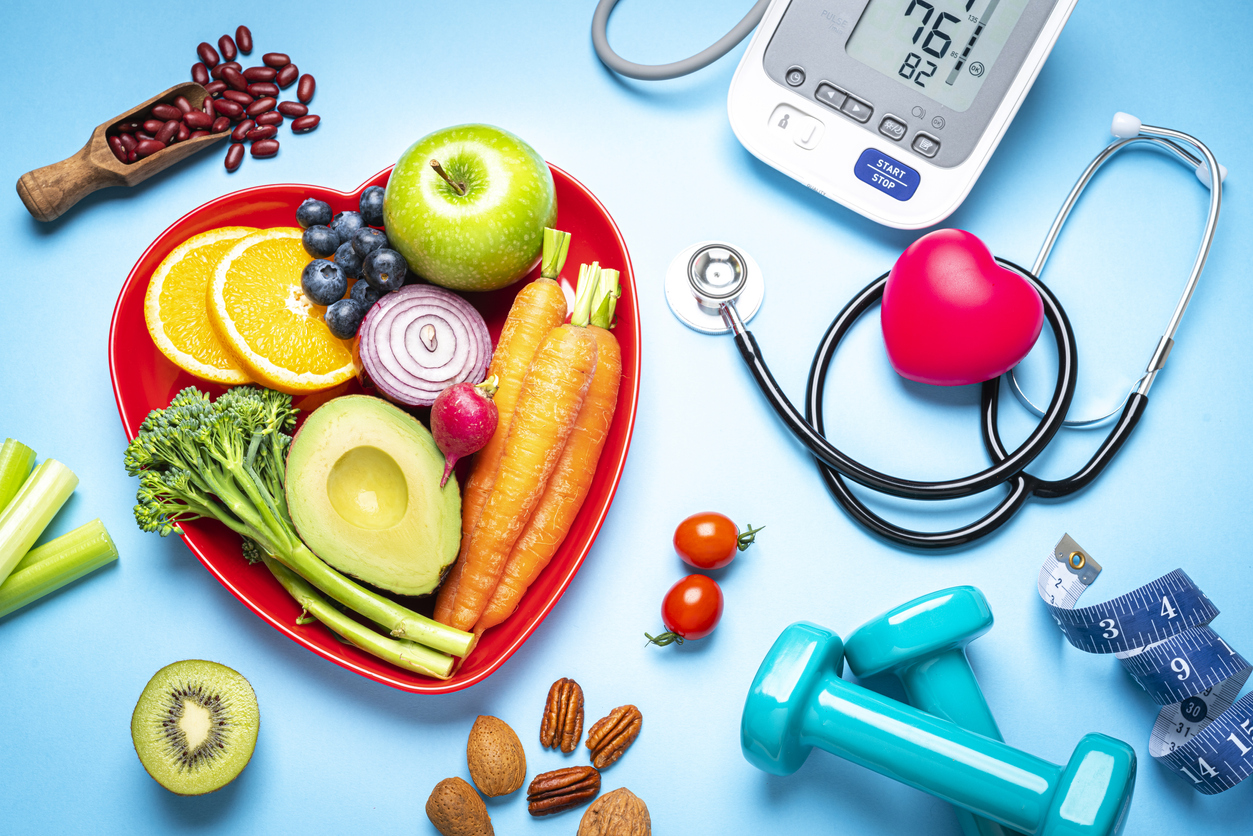PCOS exhibits a range of symptoms, including irregular periods, hormonal imbalances, and often the presence of cysts. Its diverse health implications extend from fertility issues to metabolic challenges associated with insulin resistance. Ongoing research aims to uncover the complexities of PCOS and understand its underlying mechanisms and potential treatments. Managing this condition generally involves implementing lifestyle changes, dietary adjustments and, in specific cases, considering medication. The manifestation of PCOS occurs through this spectrum of symptoms — irregular menstrual cycles, hormonal irregularities, and the frequent development of ovarian cysts.
A Brief Overview of High Cholesterol
Cholesterol is a fatty substance, not inherently “bad”. It’s essential for building cells, producing vitamins and forming hormones. However, excess cholesterol can be problematic.
There are two sources of cholesterol: the liver produces what the body needs, and the rest comes from animal-based foods like meat, poultry and dairy, containing dietary cholesterol. These foods also contain high levels of saturated and trans fats, prompting the liver to produce more cholesterol. This excess production can elevate cholesterol levels from normal to unhealthy for some individuals. Certain tropical oils, like palm oil, palm kernel oil and coconut oil, contain saturated fats that can raise bad cholesterol. These oils are commonly found in baked goods.
Elevated cholesterol is a significant controllable factor contributing to coronary heart disease, heart attacks and strokes. If accompanied by additional risk factors such as smoking, high blood pressure, or diabetes, the overall risk escalates further. The cumulative presence and severity of these risk factors directly correlate with an increased overall risk. To enhance your cholesterol levels and prevent heart disease and heart attacks, consider the following actions:
- Quit smoking — the most impactful change for reducing heart attack and stroke risk.
- Consume naturally low-fat foods like whole grains, fruits and vegetables.
- Opt for low-fat toppings, sauces and dressings.
- Steer clear of foods rich in saturated fat.
- Engage in regular exercise.
- Shed excess weight if you are overweight.
The Connection Between PCOS and Cholesterol
Elevated cholesterol is prevalent in the general population, but the risk escalates for individuals with PCOS. A study indicated that 70% of women with PCOS experience dyslipidemia, characterized by unhealthy levels of lipids — cholesterol and another fat type called triglycerides — in the bloodstream.
Hormonal Imbalances
Certain hormone levels, such as androgens like testosterone, may experience elevation. Fluctuations can also occur in estrogen and progesterone levels. Cholesterol plays a role in the synthesis of these sex hormones within the body.
Insulin Resistance
Why does PCOS increase the likelihood of high cholesterol? Many experts attribute it to insulin resistance, affecting around 70% of women with PCOS. Insulin resistance occurs when tissues resist insulin’s effects, prompting the pancreas to produce higher insulin levels. This resistance can lead to type 2 diabetes, often linked to dyslipidemia — specifically, high triglycerides and low ‘good’ cholesterol (HDL). Understanding this connection is crucial for managing both conditions. Researchers also found that LDL cholesterol particles in insulin-resistant individuals are smaller and denser, contributing to a higher risk of coronary heart disease.
Inflammation
Inflammation comes in two forms: acute and chronic. Acute inflammation is the body’s immediate response to injury or infection, as seen with cuts or colds — an essential, short-term process aiding healing and defense. Conversely, chronic inflammation is prolonged, low-grade and persists for weeks, months, or even years. This enduring inflammation is linked to health issues like obesity, diabetes and autoimmune diseases, as highlighted by the National Institutes of Health.
In 2018, a study on Nutrients revealed that chronic inflammation reduces HDL and increases LDL levels and elevates triglycerides and lipoprotein (a) — all indicative markers for cardiovascular disease. Moreover, a 2022 study on Antioxidants found that chronic inflammation induces the release of substances promoting cholesterol accumulation in artery walls, potentially leading to heart disease. Another 2022 Nutrient study highlighted how chronic inflammation may disturb the balance of fats in the bloodstream, potentially escalating cholesterol levels.
Conversely, elevated cholesterol levels can contribute to inflammation, particularly through the impairment of the inner lining of blood vessels, known as endothelial dysfunction. This initiates an inflammatory reaction, leading to the accumulation of cholesterol and plaque formation, thereby narrowing arteries and heightening the risk of heart disease, as indicated by a 2021 study in the International Journal of Molecular Sciences.
Tips To Manage Cholesterol Levels Naturally
-
Adopt a heart-healthy diet
- Make dietary adjustments to lower cholesterol and enhance heart health:
- Reduce saturated fats in red meat and full-fat dairy, lowering LDL (“bad”) cholesterol.
- Eliminate trans fats, commonly listed as “partially hydrogenated vegetable oil,” prevalent in some processed foods.
- Consume foods rich in omega-3 fatty acids like salmon and walnuts for overall heart benefits.
- Increase soluble fiber intake from sources like oatmeal, beans, Brussels sprouts, apples and pears.
- Consider incorporating whey protein from dairy products to potentially lower LDL and total cholesterol.
-
Engage in regular exercise
Boost physical activity to improve cholesterol levels. Moderate exercise raises high-density lipoprotein (HDL) cholesterol, the “good” kind. Aim for at least 30 minutes of exercise five times a week or 20 minutes of vigorous aerobic activity three times a week, with your doctor’s approval. Short, frequent bursts of activity, such as brisk walks, cycling, or playing sports, can aid in weight loss.
-
Quit smoking
Ceasing smoking enhances HDL cholesterol quickly, leading to various health benefits, including improved blood pressure, heart rate, circulation and lung function.
-
Manage weight
Even a small weight loss contributes to better cholesterol levels. Make simple changes like switching to water from sugary drinks, opting for low-calorie snacks and incorporating more physical activity into daily routines.
-
Consume alcohol in moderation
While moderate alcohol use is linked to higher HDL cholesterol, it’s not recommended for non-drinkers. Limit alcohol to one daily drink for women and men over 65, or up to two drinks a day for men under 65, as excessive alcohol can pose serious health risks such as high blood pressure and heart-related issues.
Consult Veera’s Doctors
If you’re dealing with PCOS, seeking guidance from a medical professional, particularly one knowledgeable in PCOS or women’s health, is crucial. These experts can provide personalized advice and tailored treatment options based on your specific needs.
Veera’s healthcare professionals consist of experienced specialists in PCOS and women’s health, offering contemporary insights and evidence-based treatments to help you navigate the complexities of PCOS. Considering a consultation with a Veera healthcare practitioner could represent a proactive step in taking control of your PCOS journey and cultivating a lifestyle that promotes improved balance and vitality.
Learn More With Veera
Whether you seek insights for addressing a specific health condition or aim to embrace a health-conscious lifestyle, Veera provides the essential tools to meet your needs. Our dedication to evidence-based information ensures Veera is a reliable source to strengthen your journey toward improved health and well-being. Start exploring our resources today, initiating a path of self-discovery and the pursuit of enhanced health.


















